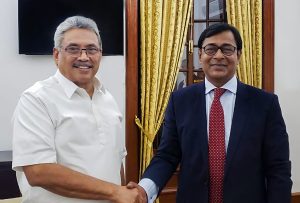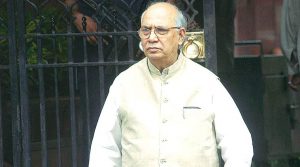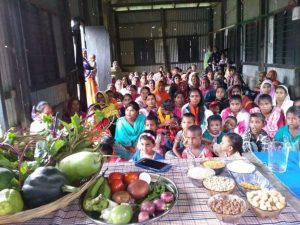 The 5th edition of BIMSTEC (Bay of Bengal Initiative for Multi-Sectoral Technical and Economic Cooperation) Summit 2020 to be held in Colombo, Sri Lanka in the month of September 2020. The summit will be preceded by the 17th Ministerial Meeting and 21st Senior Officials Meeting by the end of 2020. During the meet, it was decided that Sri Lanka will lead the science, technology, and innovation sector in BIMSTEC. Sri Lanka is the Chair of BIMSTEC between 2018 and 2020 and it will hand over the chairmanship to Thailand by the end of 2020. Even though Sri Lanka had hosted 3 Working Committee meetings earlier, this summit will be the first one under the new Administration. The 5th edition of BIMSTEC (Bay of Bengal Initiative for Multi-Sectoral Technical and Economic Cooperation) Summit 2020 to be held in Colombo, Sri Lanka in the month of September 2020. The summit will be preceded by the 17th Ministerial Meeting and 21st Senior Officials Meeting by the end of 2020. During the meet, it was decided that Sri Lanka will lead the science, technology, and innovation sector in BIMSTEC. Sri Lanka is the Chair of BIMSTEC between 2018 and 2020 and it will hand over the chairmanship to Thailand by the end of 2020. Even though Sri Lanka had hosted 3 Working Committee meetings earlier, this summit will be the first one under the new Administration. |
 Moody’s Investors Service stated that G-20 countries are expected to grow by 2.1% in 2020. Moody’s cuts 0.3 percentage points lower than its previous forecast, as the global spread of the coronavirus, is resulting in simultaneous supply and demand shocks. It cautioned that global recession risks have risen. The global credit rating agency is expecting these shocks to materially slow economic activity, particularly in the first half of this year (2020). The G-20 grouping includes advanced economies such as the US, Euro area, Japan, Germany, and the UK, and emerging economies such as China, India, Brazil, Russia, and Mexico. Moody’s Investors Service stated that G-20 countries are expected to grow by 2.1% in 2020. Moody’s cuts 0.3 percentage points lower than its previous forecast, as the global spread of the coronavirus, is resulting in simultaneous supply and demand shocks. It cautioned that global recession risks have risen. The global credit rating agency is expecting these shocks to materially slow economic activity, particularly in the first half of this year (2020). The G-20 grouping includes advanced economies such as the US, Euro area, Japan, Germany, and the UK, and emerging economies such as China, India, Brazil, Russia, and Mexico. |
 Former Union Law Minister and Congress veteran Hans Raj Bhardwaj died after a cardiac arrest. Hans Raj Bhardwaj was 83. Hans Raj Bhardwaj was born in Garhi Sampla village in Rohtak district of Haryana. He was a Rajya Sabha member for five terms from April 1982 to June 2009. Bhardwaj was the union law minister for 14 years and served under the prime ministership of Rajiv Gandhi, PV Narasimha Rao, and Dr. Manmohan Singh. He was appointed the governor of Karnataka in 2009. It was during Bhardwaj’s tenure as law minister that Bofors-accused Ottavio Quattrocchi was given a clean chit by then UPA government in 2009. Former Union Law Minister and Congress veteran Hans Raj Bhardwaj died after a cardiac arrest. Hans Raj Bhardwaj was 83. Hans Raj Bhardwaj was born in Garhi Sampla village in Rohtak district of Haryana. He was a Rajya Sabha member for five terms from April 1982 to June 2009. Bhardwaj was the union law minister for 14 years and served under the prime ministership of Rajiv Gandhi, PV Narasimha Rao, and Dr. Manmohan Singh. He was appointed the governor of Karnataka in 2009. It was during Bhardwaj’s tenure as law minister that Bofors-accused Ottavio Quattrocchi was given a clean chit by then UPA government in 2009. |
 The Central Government is implementing the flagship programme Poshan Abhiyan for improving the nutritional status of Indian citizens. This programme helps children, adolescents, pregnant women, and lactating mothers by leveraging technology. The importance of being given to the programme is evident from the fact that as many as 14 Central Departments and all the State Governments are being involved in the programme. Tamil Nadu tops the list of the states in terms of the number of participants in the programme. The Integrated Child Development Scheme has been in force for long in the southern state that has got rejuvenated with the Centre’s Poshan Abhiyaan mission. The programme is revitalizing India by reaching out to the children and mothers across the nation. The Central Government is implementing the flagship programme Poshan Abhiyan for improving the nutritional status of Indian citizens. This programme helps children, adolescents, pregnant women, and lactating mothers by leveraging technology. The importance of being given to the programme is evident from the fact that as many as 14 Central Departments and all the State Governments are being involved in the programme. Tamil Nadu tops the list of the states in terms of the number of participants in the programme. The Integrated Child Development Scheme has been in force for long in the southern state that has got rejuvenated with the Centre’s Poshan Abhiyaan mission. The programme is revitalizing India by reaching out to the children and mothers across the nation. |
 On March 8, 2020, the Union Environment Minister Prakash Javedekar announced that sanitary napkin disposal bags are to be made mandatory. On March 8, 2020, the Union Environment Minister Prakash Javedekar announced that sanitary napkin disposal bags are to be made mandatory. |
|
|
 A Delimitation Commission was formed under former Supreme Court judge Ranjana Prakash Desai. A Delimitation Commission was formed under former Supreme Court judge Ranjana Prakash Desai. |
|
|
|
 On March 9, 2020, the prices of crude oil plunged by 20% after OPEC to failed to make a deal in making production cuts. On March 9, 2020, the prices of crude oil plunged by 20% after OPEC to failed to make a deal in making production cuts. |
|
|
|
 On March 8, 2020, TIFAC operating under Ministry of Science and Technology launched Vigyan Jyoti. The scheme was announced to celebrate International Women’s Day. On March 8, 2020, TIFAC operating under Ministry of Science and Technology launched Vigyan Jyoti. The scheme was announced to celebrate International Women’s Day. |
|
|
|
 The scientists of ARCI (Advanced Research for Powder Metallurgy and New Materials) recently developed PEMFC (Polymer Electrolyte Membrane Fuel Cells). The technology is to be used to manage Natural Disasters. The scientists of ARCI (Advanced Research for Powder Metallurgy and New Materials) recently developed PEMFC (Polymer Electrolyte Membrane Fuel Cells). The technology is to be used to manage Natural Disasters. |
|
|
|
 A Parliamentary panel set up on education submitted its report to Rajya Sabha on 2020-21 demand for grants. The report said that shortfalls in budget funds has led to critical infrastructure gaps. A Parliamentary panel set up on education submitted its report to Rajya Sabha on 2020-21 demand for grants. The report said that shortfalls in budget funds has led to critical infrastructure gaps. |
|
|
You need to login to perform this action.
You will be redirected in
3 sec
